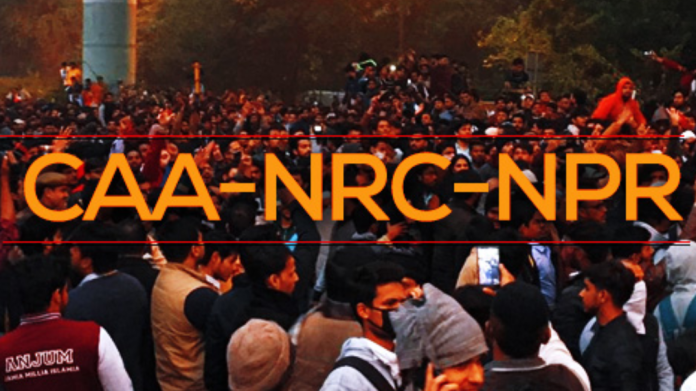New Delhi, March 14: People’s Union for Civil Liberties (PUCL) has filed an urgent application before the Supreme Court, seeking stay on the implementation of CAA. The civil rights body has announced “to continue its fight against citizenship laws as it is unconstitutional and discriminates on grounds of religion,” it said in a statement on Wednesday.
PUCL has strongly condemned the move of the Union Government to implement the Citizenship Amendment Act, 2019 (CAA-2019), by notifying the amended Rules in the official gazette on March 11, four years after the law was enacted, even as more than 200 petitions challenging the law are currently pending before the Supreme Court.
“It is deeply concerning that this decision has been announced just before the General Elections, putting to question the political motivations behind the decision, especially since the government itself took several extensions over this period and has shown no urgency in implementing the law,” the statement said.
PUCL maintains that “this divisive piece of legislation is a betrayal of the ideals of our freedom struggle, disregards the inclusive and plural history of India and squarely violates the letter and spirit of the Indian Constitution. It is illegal, constitutionally immoral and unconstitutional as it makes an arbitrary and discriminatory link between religion and citizenship.”
“However, unlike both the constitutional provisions and existing statutory provisions on citizenship, the CAA-2019 is a statute which is discrimination writ large… The problematic heart of the CAA 2019 is that it chooses to provide eligibility for Indian citizenship to ‘illegal immigrants’ residing in India from the viewpoint of their religion and expressly excludes from its purview Muslims, while including persons belonging to the Hindu, Sikh, Buddhist, Jain, Parsi or Christian community,” it noted.
“This prima facie discriminatory piece of legislation goes against the core value of secularism enshrined in the Indian Constitution and also violates Articles 14 and 21 of the Indian Constitution, under which the protection by the State of persons, both citizens and non-citizens has been underscored. Therefore, discrimination against persons solely on the grounds of religion is unacceptable,” it added.
“As the Home Minister of India indicated, the CAA should not be seen in isolation but as part of a chronology, with it being followed by the National Population Register (NPR) and the National Register of Citizens (NRC). First, the NPR, being the register of all persons residing in a place, is to be prepared, which is to be followed by the NRC process under the Citizenship Rules, 2003. For conducting NRC, the Local Registrar is empowered to verify and scrutinise the particulars collected of every family and individual and identify those having ‘doubtful’ citizenship, to send for further enquiry. In an empowerment of third-party vigilantism, the rules give the power to anyone to ‘object to the inclusion or exclusion of certain names’, from the first list,” the statement claimed.
On NPR and NRC, the release claimed, “The NPR and NRC process will create two categories of citizens in India, Citizens and Doubtful citizens. The NPR and NRC will adversely affect not only Muslims who do not have documentation, but also other categories of persons without documents.”




